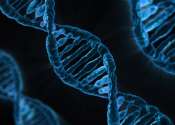KAT6A syndrome: advances on the genetic bases and clinical picture of a rare disease
A research team has described five new cases of a rare disease known as KAT6A syndrome, of which there are only 80 dominant cases worldwide. This neurological and developmental disorder, caused by alterations in the lysine ...
Feb 26, 2020
0
1









